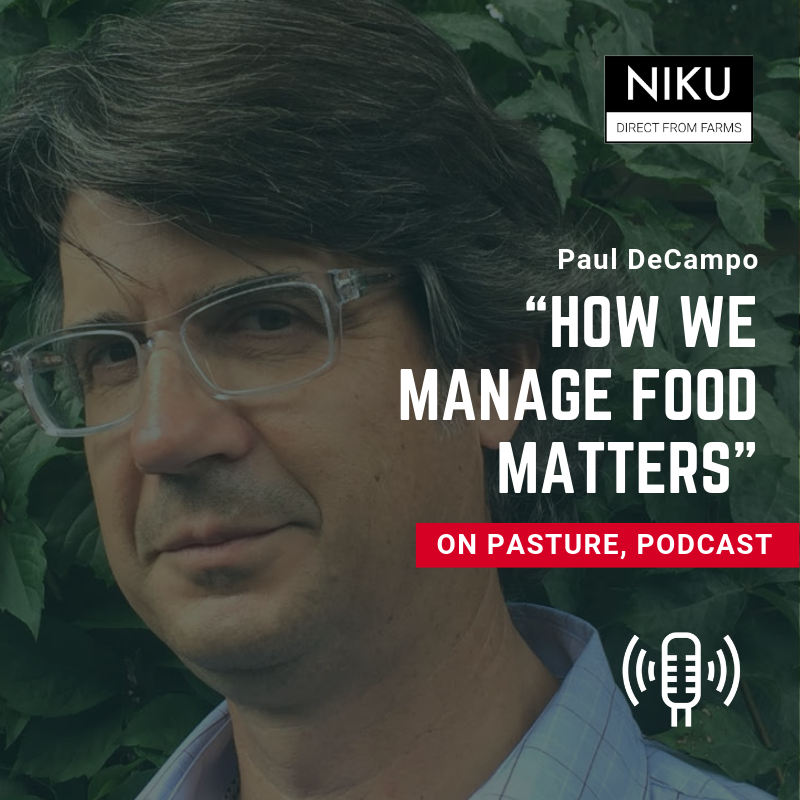Get $60 OFF throughout your first 2 boxes with code HOLIDAY60.
Offer ends in ::
Set your location to shop products local to you.
NIKU Farms
Thank you for your feedback!
If you requested further assistance, you’ll receive an email confirmation and we’ll follow up within 24 hours.
Got more questions? Start a new chat.
End chat
Are you sure you want to end the chat?
Cancel
Are you sure?
Your response has not been submitted. To process your request for further assistance, please hit the 'Back' button below, complete the form and submit your request.
Close Chat

“The health of soil, plant, animal, and man is one and indivisible.” – Sir Albert Howard, the father of modern organics
To learn about Sir Albert Howard’s philosophy and more, we sat down and discussed biodynamic agriculture, the Slow Food Movement, food equity and education with Paul DeCampo, former director of the Toronto Slow Food chapter, director at Southbrook Winery, and current business developer and educator at George Brown College for International Spirits.
Paul told us about organics and biodiversity. Before the 1900s, everything was essentially “organic”. Then nitrogen-based fertilizers were introduced, as a by-product of the arms industry. Biodynamic agriculture was developed as a response, where animals, crops, and soil as a single system.
Still, there have been many changes to the food system over the last century, and while these changes were made with good intentions, it has negatively impacted many aspects of the food industry, from farmer to consumer. This is where Slow Food comes in. The movement originated in 1986 in Italy, when Carlo Petrini was among those who opposed the opening of a McDonald’s in Rome. Shortening the link between consumers and farmers is ultimately the goal of Slow Food, and in this interview, Paul tells us how they are endeavouring to do that, through programs like Food Share and the Good Food Program.

when you subscribe to our mailing list.